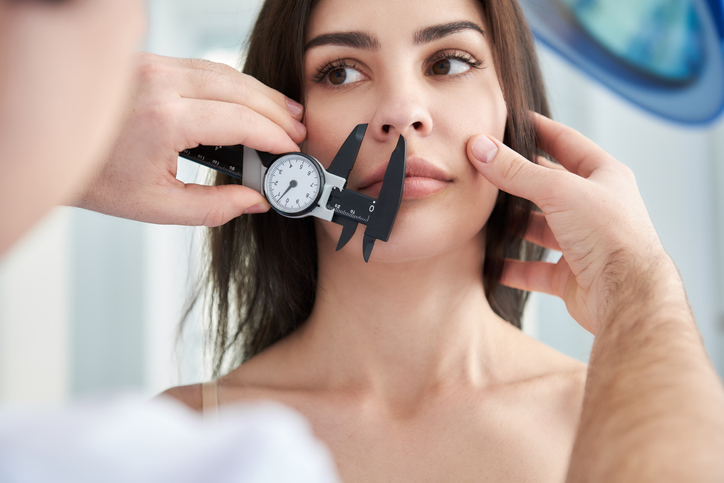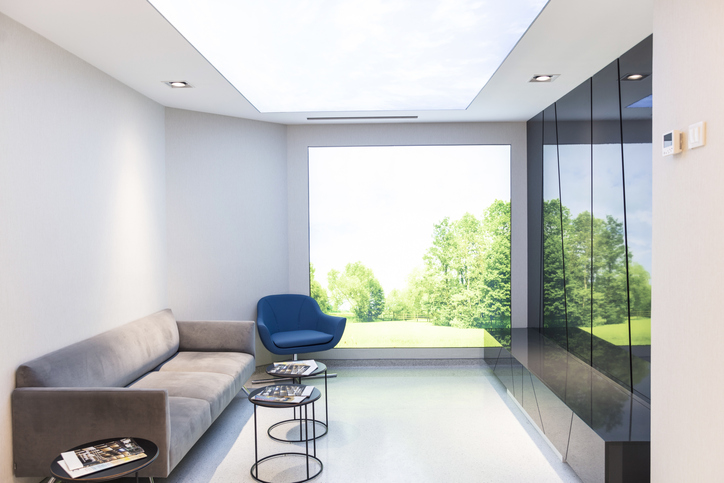Nose reduction surgery is a cosmetic treatment that is a step toward a beautiful nose for many people, but the question has been raised, "Can I smile after a nose reduction procedure?" Some people have asked the question, "Can I laugh after the nose reduction?
Here, we will explain the actual procedure flow and details of nose reduction, as well as the risks and countermeasures as advised by our medical specialists. We hope that understanding the risks of nose reduction surgery and taking appropriate countermeasures will help to alleviate any concerns or doubts you may have.
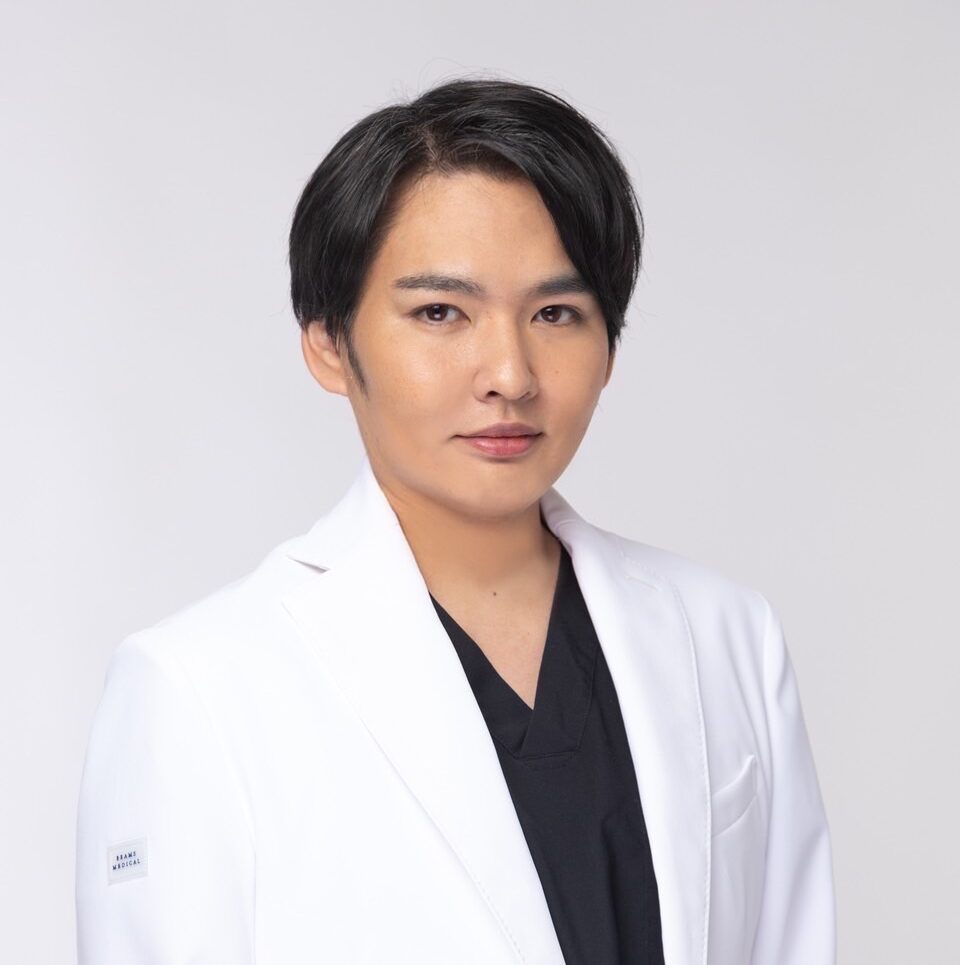
Graduated from the Faculty of Medicine, National Kumamoto University. After serving as the director of major beauty clinics in Japan, etc., he opened Aladdin Aesthetic Clinic in 2023. He is a professional in aesthetic medicine with a doctorate in anti-aging research and many years of experience. With the motto of "Toward the realization of cosmetic medicine without lies," he aims to be the "Only One" together with his patients.
- What is nose reduction? Explanation of the procedure as well as the flow of the procedure
- Risk measures and prevention methods for nose reduction
- Frequently asked questions about nose reduction procedures
- Q1. Is it likely that I will not be able to laugh?
- Q2. Will nose reduction return to normal over time?
- Q3. After nose reduction surgery, will I look more natural when I smile?
- Q4. Will the surgery be painful or cause swelling or bruising?
- Q5. Is it possible to return to work immediately after the surgery?
- summary
What is nose reduction? Explanation of the procedure as well as the flow of the procedure
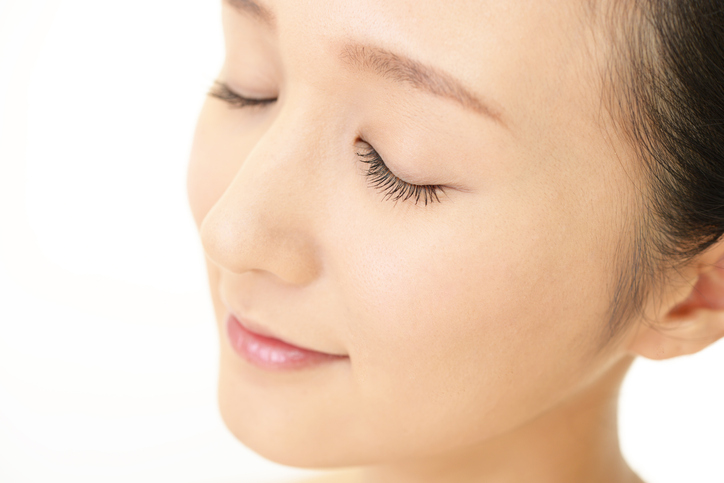
Nose reduction is a plastic surgery procedure performed to improve the appearance and shape of the nose, especially for those who feel that the nose area is too large, unnatural in shape, or out of balance with the overall face.
Balance in the human face is extremely important, and even small changes can have a major impact. Nose reduction surgery allows for such subtle adjustments and is an important way for people to regain confidence.
Types of nose reduction procedures
There are two main types of nose reduction: cutting the inside of the nose and cutting the outside (front side) of the nose. This is selected mainly according to the degree of bulging of the nose. There is also injectable nose reduction (Botox injections, etc.).
In Japan, medial incisions are mainly used because scars are less noticeable. However, if the surgery is performed properly, scars are rarely noticeable even through an external incision, and the treatment plan is based on the actual affected area and the wishes of the patient.
Specific treatment flow
The specific flow of the treatment is as follows
|
First, you will have a consultation with a specialized cosmetic surgeon to determine your desires and current situation. Next, a surgical plan is made and a surgery date is scheduled. On the surgery day, under local or general anesthesia, the doctor will remove or reshape the skin and cartilage to reduce the size of the nose. The surgery usually takes 1~2 hours and is usually an outpatient procedure.
What are the possible risks?
While nose reduction surgery is generally a safe procedure, it is important to discuss possible risks and complications with your surgeon well in advance. These include infection, bleeding, anesthesia-related problems, unexpected results, or the need for revision surgery, so they should not be taken lightly and should be addressed well in advance of the procedure.
In particular, to describe the problem of "not being able to smile" due to nose reduction is one of the rare side effects that may be experienced by some after nose reduction surgery.
This symptom refers to the fact that the surgery temporarily affects the muscles of the face, especially when smiling, causing restrictions. In most cases, this is temporary and will improve with proper care, so it is unlikely that the inability to smile will continue forever.
Other risks and side effects should also be mentioned. The outcome of surgery depends on the individual, but sometimes there are risks such as bleeding, infection, anesthesia-related problems, and unsatisfactory results. However, these risks can be minimized with proper preoperative counseling and postoperative care.
If you want to have a nose reduction without worrying about downtime, side effects, or risks, Botox injections are recommended for nose reduction. However, this treatment lasts only about 6 months, so continuous treatment is required.
Risk measures and prevention methods for nose reduction
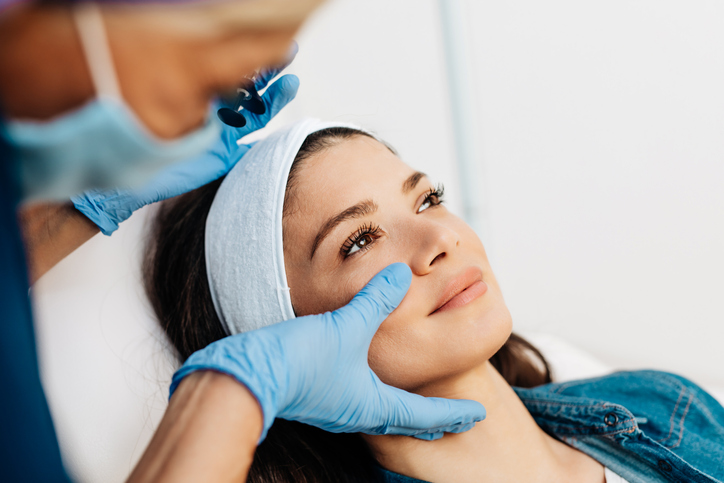
Preventive measures efforts and proper postoperative care are important to minimize risk after nose reduction surgery.
| Countermeasure Points | Contents |
|---|---|
| Facial Muscle Training | Exercises to strengthen muscles for smiling under supervision before surgery |
| Rest after surgery | After surgery, rest well and keep the wound clean according to your doctor's instructions. |
| pain management | If there is pain after surgery, take prescribed medications appropriately |
| Moderate activity | Avoid strenuous exercise and heavy lifting for several weeks after surgery to avoid putting extra pressure on the face |
| Facial Muscle Rehabilitation | If, during the post-operative recovery period, symptoms of "not smiling" occur, under supervision, rehabilitation to regain muscle movement as needed. |
First, to prevent the "can't smile" problem, training of the facial muscles prior to surgery can help. This may facilitate recovery after surgery and restore the ability of the facial muscles to move naturally.
The first thing to keep in mind regarding postoperative care is to rest well and keep the wound clean according to your surgeon's instructions. This will minimize the risk of infection. Also, take appropriate pain management after surgery and take prescribed medications as needed.
In addition, it is recommended that the patient avoid strenuous exercise, heavy lifting, and unnecessary pressure on the face for several weeks after surgery. This is to preserve the new shape and facilitate the healing process.
If symptoms of "not smiling" arise during the post-operative recovery period, rehabilitation of the facial muscles should be initiated to regain muscle movement and improve the "not smiling" problem. However, if the situation is so severe that the patient is unable to laugh, he or she should immediately report the problem to his or her physician and have it checked again. In some cases, we will also consider moves such as revision surgery.
With the above preventive measures and care, the risks of nose reduction surgery can be minimized and satisfactory results achieved.
Frequently asked questions about nose reduction procedures
Many questions and concerns come to mind when it comes to nose reduction surgery. As mentioned above, there are some risks associated with nose reduction surgery, but with the right information and proper procedures, it is possible to achieve safe and satisfactory results.
It is also important to proactively inquire with the physician about any questions you may have during the pre-procedure consultation to make the best decisions to protect your own health and beauty.
Below are some of the most frequently asked questions and their answers.
Q1. Is it likely that I will not be able to laugh?
A: Although facial muscles may be temporarily affected after nose reduction surgery, it usually improves naturally within a few weeks to a few months. It is rare to completely "stop smiling" and this risk can be minimized if the surgery is performed under the care of an experienced physician and with proper aftercare.
Q2. Will nose reduction return to normal over time?
A: The results of nose reduction surgery are usually permanent. However, some changes may be seen for a few months after the wound has completely healed and the swelling has subsided, until the results finally stabilize. Also, with Botox nose reduction, it can be as long as 6 months and requires continuous treatment.
Q3. After nose reduction surgery, will I look more natural when I smile?
A: After nose reduction surgery, facial muscle movement may be temporarily restricted. However, this is usually temporary and as the recovery period progresses, you will be able to take on a natural facial expression. If you experience any discomfort, please consult your doctor immediately.
Q4. Will the surgery be painful or cause swelling or bruising?
Surgery is performed under general or local anesthesia, so there is little or no pain during surgery. After surgery, pain is still manageable and pain medication is prescribed as needed. In addition, postoperative swelling generally diminishes within a few weeks, depending on the individual patient and the nature of the surgery.
Q5. Is it possible to return to work immediately after the surgery?
This depends on the nature of the surgery and the individual's recovery, but generally a week or two of rest is recommended after nose reduction surgery. This is to allow the body time to recover and manage the initial swelling and discomfort. However, it is possible to go about one's daily activities without having to miss work or school by wearing a mask or other means, and there should be no problem as long as one is committed to aftercare under the guidance of one's physician.
summary
Nose reduction surgery has become a very popular cosmetic treatment in recent years, but it must be proceeded with caution and with a thorough understanding of the risks and side effects.
It is probably most important to understand the "no smile" problem and other risks before considering it, and to prepare appropriate countermeasures in advance or discuss them during a consultation. It is also important to choose a doctor or clinic that you can trust. We hope that the contents here will help you in this regard.
At Aladdin Aesthetic Clinic, based on our many years of experience in cosmetic medicine and cosmetic dermatology and the knowledge of our doctoral degree, we provide counseling that aims to be "only one", offering the best treatment for each person we meet. We offer only the necessary treatments without any unnecessary information or suggestions.
Feel free to use our official LINE account for 24-hour counseling and reservations. Please feel free to contact us for free counseling for the first time or if you have any concerns.
